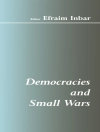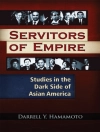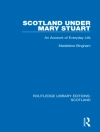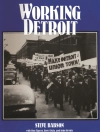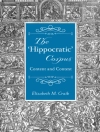Significant recent research on the German Right between 1918 and 1933 calls into question received narratives of Weimar political history. The German Right in the Weimar Republic examines the role that the German Right played in the destabilization and overthrow of the Weimar Republic, with particular emphasis on the political and organizational history of Rightist groups as well as on the many permutations of right-wing ideology during the period. In particular, antisemitism and the so-called “Jewish Question” played a prominent role in the self-definition and politics of the right-wing groups and ideologies explored by the contributors to this volume.
Inhaltsverzeichnis
Abbreviations
Introduction: The German Right in the Weimar Republic: New Directions, New Insights, New Challenges
Larry Eugene Jones
Chapter 1. Hindenburg and the German Right
Wolfram Pyta
Chapter 2. From Friends to Foes: Count Kuno von Westarp and the Transformation of the German Right
Daniela Gasteiger
Chapter 3. Conservative Antisemitism in the Weimar Republic: A Case Study of the German National People’s Party
Larry Eugene Jones
Chapter 4. Academics and Radical Nationalism: The Pan-German League in Hamburg and the German Reich
Rainer Hering
Chapter 5. Realms of Leadership and Residues of Social Mobilization: The Pan-German League, 1918-1933
Björn Hofmeister
Chapter 6. Continuity and Change on the German Right: The Pan-German League and Nazism, 1918-1939
Barry A. Jackisch
Chapter 7. Weimar’s “Burning Question”: Situational Antisemitism and the German Combat Leagues, 1918-1933
Brian E. Crimm
Chapter 8. Antisemitism and the “Jewish Question” in the Political Worldview of the Catholic Right
Ulrike Ehret
Chapter 9. Eugenics and Protestant Social Thought in the Weimar Republic: Friedrich von Bodelschwingh and the Bethel Institutions
Edward Snyder
Chapter 10. Carl Schmitt and the Weimar Right
Joseph W. Bendersky
Notes on Contributors
Select Bibliography of New and Standard Works on the History of the German Right, 1918-1933
Index
Über den Autor
Larry Eugene Jones is Professor of Modern European History at Canisius College in Buffalo, New York. He is a specialist in the history of the Weimar Republic and author of German Liberalism and the Dissolution of the Weimar Republic, 1918-1933 (University of North Carolina Press, 2011) and Hitler versus Hindenburg: The 1932 Presidential Elections and the End of the Weimar Republic (CUP, 2016). He is currently working on a new book tentatively entitled Conservatives, Nationalists, and Nazis: A History of the German Right from 1918 to 1933/34.


